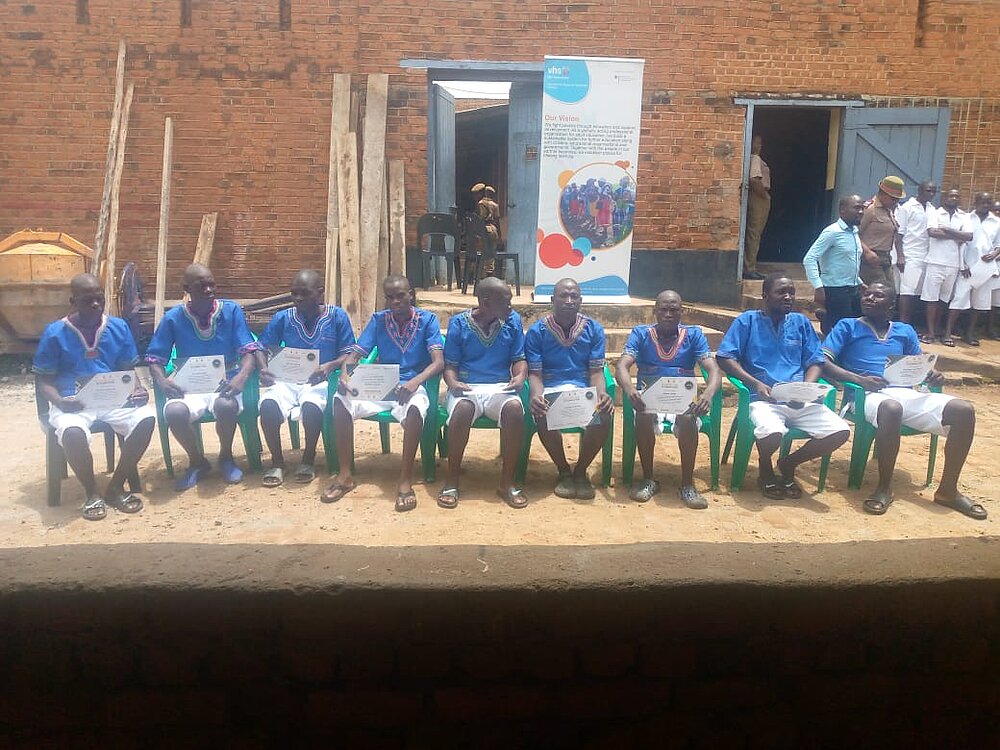Centre for Human Rights Education, Advice and Assistance (CHREAA) has said the Malawi Constitution provides that ‘all person are entitled to education’ inclusive of inmates that are in conflict with the law. The organization said like all citizens, prison inmates have the right to education. Considering that most of the inmates missed basic education, ALE is the only hope for them to prepare for post-prison life. Most inmates are adults that need skills beyond reading and writing. They need to find something that will help them earn a living. The United Nations stipulates that prison education should be aimed “at the full development of the human personality.”
CHREAA Project Officer Joyness Dziwani said this recently at Zomba Central Prison when the organization, with support from DVV International, graduated 25 inmates in vocational tailoring carpentry and hair-dressing.
She said the project contributes to inmates’ reformation and capacity building for them to easily to easily integrate in the society after prison life. But she lamented that rejection of communities to mix with ex-convicts is a major challenge.
“The communities should always remember that ex-convicts have the potential to contribute to the social-economic development of the country if they are given a space to execute the vocational skills learned from the prisons.” She said.
Zomba Central Prison station officer Risted Mabeti emphasized that vocational skills among inmates have the potential to rehabilitate them to become productive citizens.
He said the trainings, which started in May 2022, are essential in the offenders’ lives as they decrease re-offending after serving their custodial sentences.
“The skills enable them to venture into various businesses that improve their living standards,” he said.
On his part, DVV International Regional Director for Southern Africa, Gerhard Quincke, said the programme targets inmates with interest in pursuing vocational skills training, read and write, serving minor offences as well as those close to complete their sentences.
In his remarks, one of the training’s beneficiaries, Lapken Mulima, who awaits release in May this year, said the carpentry skills he has acquired will enable him to set up a carpentry shop in his community.
“Together with my friends, we are optimistic to become productive entrepreneurs,” he said.



